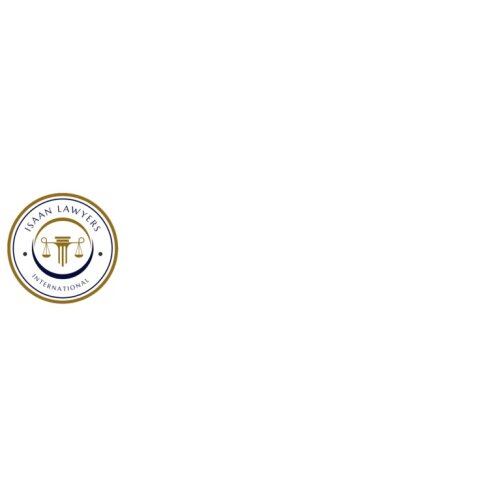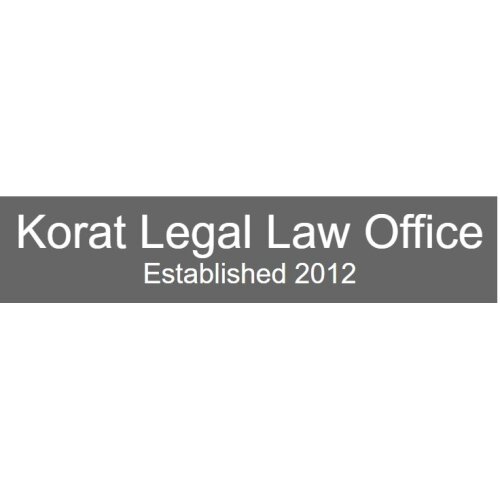Best Sanctions & Export Controls Lawyers in Nakhon Ratchasima
Share your needs with us, get contacted by law firms.
Free. Takes 2 min.
List of the best lawyers in Nakhon Ratchasima, Thailand
About Sanctions & Export Controls Law in Nakhon Ratchasima, Thailand
Sanctions and export controls are legal mechanisms that regulate and, in some cases, restrict the movement of certain goods, technology, and services across borders for reasons such as national security, foreign policy, or international obligations. In Nakhon Ratchasima, as one of Thailand’s economic hubs, businesses and individuals engaged in international trade need to comply not only with local regulations but also with laws and international commitments that Thailand has to follow. Misunderstanding or violating these laws can result in significant legal and financial consequences.
Why You May Need a Lawyer
There are several situations in which consulting with a lawyer who specializes in sanctions and export controls may be necessary:
- Importing or exporting goods subject to specific control laws
- Dealing with goods or technology potentially classified as dual-use items (civilian and military applications)
- Transacting with parties from countries or entities subject to international sanctions
- Receiving inquiries or investigations from Thai authorities or foreign agencies regarding compliance
- Planning business expansions that involve sensitive goods or technology transfers
- Uncertain about Thailand’s compliance requirements regarding U.S., EU, or UN sanctions relevant to your business
A legal expert can help you navigate complex regulations, minimize risks, and ensure compliance with both local and international laws.
Local Laws Overview
Thai laws regarding sanctions and export controls stem from a combination of domestic statutes and obligations under United Nations Security Council Resolutions and other international agreements. Relevant domestic laws and regulations include:
- Export and Import of Goods Act B.E. 2522 (1979): Governs the general export and import framework, which applies to almost all goods traded across Thai borders and provides for licensing and reporting requirements.
- Trade Controls on Weapons of Mass Destruction Related Items Act B.E. 2562 (2019): Establishes control over dual-use items, particularly those which can be used for WMD development, including related technology and services.
- Customs Act B.E. 2560 (2017): Imposes duties, licensing, and administrative oversight for goods crossing Thai borders, including penalties for violations.
- UN and International Sanctions: Thailand regularly implements sanctions that result from UN Security Council Resolutions and may choose to enforce other international sanctions through domestic orders or notices.
Local enforcement is managed primarily by the Department of Foreign Trade (DFT), Royal Thai Customs, and sometimes coordination with the Anti-Money Laundering Office and other government bodies. Nakhon Ratchasima, as a regional commercial center, is subject to these same nationwide regulations, but local business hubs often face heightened scrutiny due to higher trade volumes and the presence of logistics infrastructure.
Frequently Asked Questions
What types of goods are typically subject to export controls in Thailand?
Goods subject to export controls include those on the control list under the Export and Import of Goods Act, such as arms, dual-use items, technology with potential military applications, and goods covered by international sanctions.
How do I determine if my business needs an export license?
You should check the relevant control lists published by the Department of Foreign Trade and consider consultation with a legal expert or the DFT before exporting. Most sensitive items, especially strategic goods, require licensing.
What are the penalties for violating export control or sanctions laws in Nakhon Ratchasima?
Penalties can include fines, seizure of goods, suspension or revocation of export privileges, and even criminal prosecution ranging from administrative sanctions to imprisonment.
Are there any special considerations for sending technology or software outside Thailand?
Yes, technology and software, especially those that can be classified as dual-use, may be controlled and require proper documentation and, in some cases, an export license.
How can I check if a potential trade partner is under sanctions?
You can consult the DFT and relevant government databases. Legal counsel can help you conduct due diligence, including screening against the latest UN, U.S., and EU lists.
Is Nakhon Ratchasima under any special export control jurisdiction?
No, but as a commercial hub in Northeast Thailand, businesses in Nakhon Ratchasima must follow all national export control and sanctions regulations, and may encounter more frequent inspections due to higher trade activity.
Do Thai laws cover re-export or transshipment activities?
Yes, Thai laws control re-export and transshipment, meaning goods passing through Thailand or being transferred from one foreign destination to another via Thailand may also be subject to controls.
What should I do if authorities approach me for a sanctions or export control investigation?
Contact a local lawyer experienced in this field immediately. Cooperate with authorities but only respond formally with legal guidance to protect your legal rights.
Are local businesses responsible for third-party compliance?
Yes, businesses must exercise due diligence to ensure that their customers and suppliers are not violating export laws or international sanctions, as liability can extend to third-party activities.
Who enforces export control laws in Nakhon Ratchasima?
Enforcement is carried out by Royal Thai Customs, Department of Foreign Trade, and relevant national agencies. Local police and customs officials also play a role in supporting enforcement actions.
Additional Resources
For those seeking guidance or information about sanctions and export controls in Nakhon Ratchasima, the following organizations may be helpful:
- Department of Foreign Trade (DFT) - Ministry of Commerce
- Royal Thai Customs
- Federation of Thai Industries - Nakhon Ratchasima Chapter
- Provincial Commercial Office, Nakhon Ratchasima
- Board of Trade of Thailand
- Local chamber of commerce offices
These organizations offer regulatory guidance, training, updates, and, in some cases, direct support for licensing and compliance matters.
Next Steps
If you believe you need legal assistance regarding sanctions or export controls in Nakhon Ratchasima, you should take the following steps:
- Gather all relevant documentation related to your imports, exports, partners, and correspondence with authorities.
- Consult with a local lawyer experienced in international trade law, preferably one familiar with sanctions and export controls.
- Reach out to the Department of Foreign Trade for the latest regulatory updates and guidance specific to your type of goods or services.
- If your case involves potential violations, avoid making any formal statements to authorities until you have sought legal counsel.
- Consider ongoing training or compliance programs for your business to prevent future issues.
Taking early and informed action can help protect your interests, avoid penalties, and ensure your business remains compliant with Thai law in this complex area.
Lawzana helps you find the best lawyers and law firms in Nakhon Ratchasima through a curated and pre-screened list of qualified legal professionals. Our platform offers rankings and detailed profiles of attorneys and law firms, allowing you to compare based on practice areas, including Sanctions & Export Controls, experience, and client feedback.
Each profile includes a description of the firm's areas of practice, client reviews, team members and partners, year of establishment, spoken languages, office locations, contact information, social media presence, and any published articles or resources. Most firms on our platform speak English and are experienced in both local and international legal matters.
Get a quote from top-rated law firms in Nakhon Ratchasima, Thailand — quickly, securely, and without unnecessary hassle.
Disclaimer:
The information provided on this page is for general informational purposes only and does not constitute legal advice. While we strive to ensure the accuracy and relevance of the content, legal information may change over time, and interpretations of the law can vary. You should always consult with a qualified legal professional for advice specific to your situation.
We disclaim all liability for actions taken or not taken based on the content of this page. If you believe any information is incorrect or outdated, please contact us, and we will review and update it where appropriate.









